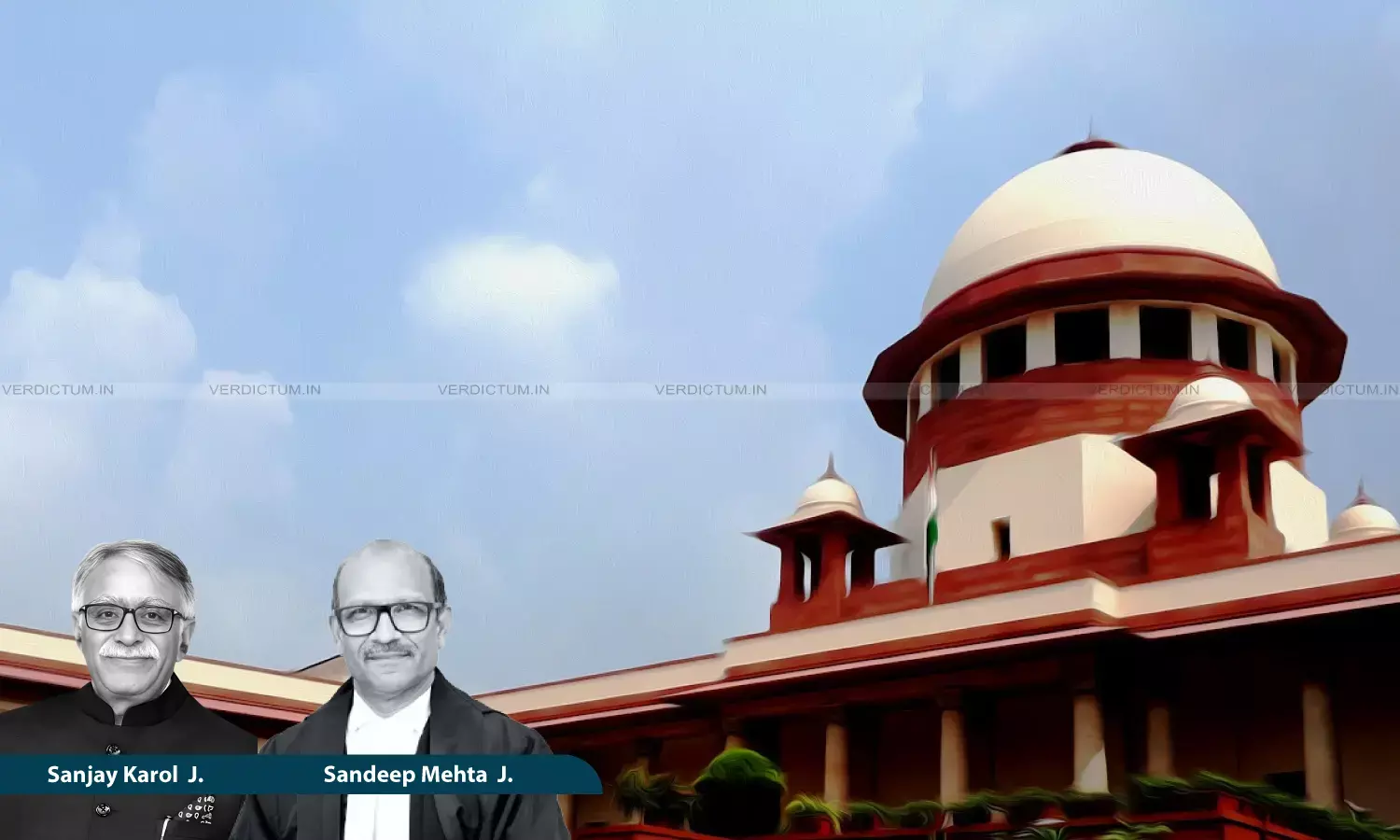Conviction Cannot Be Sustained When Genesis Of Incident Doubtful: Supreme Court Acquits Four Accused In 1990 Murder Case
Acquitting four men convicted in a 1990 murder case after finding material contradictions in the prosecution’s evidence, the Apex Court held that when the origin and manner of an alleged incident are doubtful, the conviction cannot be sustained.

Justice Sanjay Karol, Justice Sandeep Mehta, Supreme Court
The Supreme Court acquitted four men convicted in an over three-decade-old murder case, observing that when the genesis and manner of the incident are doubtful and the prosecution’s version suffers from material contradictions, conviction cannot be sustained.
The Apex Court was hearing an appeal filed by one of the convicts challenging concurrent findings of guilt recorded by the Madhya Pradesh High Court and the Trial Court under Section 302 of the Indian Penal Code.
A Bench comprising Justice Sanjay Karol and Justice Sandeep Mehta, while deciding the matter, reiterated that “when the genesis and the manner of the incident itself are doubtful, conviction cannot be sustained.”
Advocate Pukhrambam Ramesh Kumar represented the appellant, while Advocate Pashupathi Nath Razdan appeared on behalf of the respondent.
Background
The prosecution's case was based on a complaint lodged by the father of the deceased, alleging that ten men, including the appellant, attacked his son when he intervened in a dispute over the dismantling of a temporary hutment. The deceased succumbed to injuries days later, leading to registration of an offence under Section 302 IPC.
During the trial, the prosecution examined 18 witnesses, including two purported eyewitnesses. The Trial Court convicted four accused and acquitted six others, while the High Court upheld the conviction.
Among all convicts, the appellant alone approached the Supreme Court, arguing that the evidence was riddled with contradictions and inconsistencies about the place and manner of the incident.
Court’s Observation
The Supreme Court held a deliberate examination of the testimonies of the two alleged eyewitnesses, and found their accounts to be mutually contradictory and inconsistent with the prosecution’s original version, observing that “such conflicting versions cannot co-exist within a credible narrative.”
The Court observed that one witness claimed the incident took place near a field, while another asserted that it occurred near a hutment, both contradicting the First Information Report. The Bench found that each witness denied the other’s presence at the scene and that their statements conflicted with the site inspection plan and medical evidence.
Emphasising the principles laid down in Pankaj v. State of Rajasthan (2016), the Bench reiterated that when the genesis and the manner of the incident are doubtful, the accused cannot be convicted.
The Bench further cited Bhagwan Sahai v. State of Rajasthan to underline that “once the prosecution is found to have suppressed the origin and genesis of the occurrence, the only proper course is to grant the accused the benefit of doubt.”
The Court also noted that there was no credible explanation regarding the cause of the alleged altercation or the precise location of the assault, observing that the prosecution’s shifting narrative undermined the entire case.
The Bench, accordingly, concluded that “since the entire case of the prosecution has fallen, all four convicted accused persons are entitled to be extended the benefit of doubt.”
Conclusion
Holding that the prosecution failed to prove the case beyond a reasonable doubt, the Supreme Court concluded that the inconsistencies in the evidence rendered the entire story doubtful.
Exercising its powers under Article 142 of the Constitution, the Court extended the benefit of doubt not only to the appellant but also to the three co-convicts who had not filed appeals.
Allowing the appeal, the Supreme Court set aside the order of the Madhya Pradesh High Court and acquitted the appellant and the co-accused of all charges.
Cause Title: Kannaiya v. State of Madhya Pradesh (Neutral Citation: 2025 INSC 1246)
Appearances
Appellant: Advocates Pukhrambam Ramesh Kumar, AOR, Karun Sharma, Anupama Ngangom, Rajkumari Divyasana
Respondent: Advocates Pashupathi Nath Razdan, AOR, Aditya Vaibhav Singh, Abhinav Srivastav


